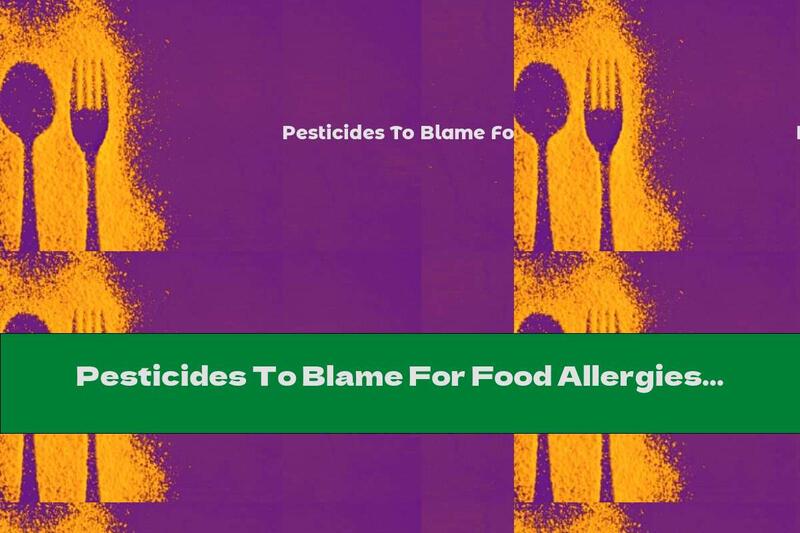Pesticides To Blame For Food Allergies?
 Author: Karen Lennox
Time for reading: ~1
minutes
Last Updated:
February 12, 2026
Author: Karen Lennox
Time for reading: ~1
minutes
Last Updated:
February 12, 2026

In this article, learn more about Pesticides To Blame For Food Allergies?. Exposure to dichlorophenol increases the risk of sensitivity to certain foods..
Exposure to high levels of certain microbes and chemicals increases the risk of developing food allergies.
Scientists have discovered such a danger when exposed to dichlorophenol, which is produced by the decomposition of pesticides, including chlorinated chemicals used to purify drinking water. They are common chemicals, explains Dr. Elina Gershaw, an allergist at Montefiore Medical Center in the Bronx, New York.
According to the research team, it is possible that the increased protection against microbes in some way reduces the body's tolerance to food.
A study compares the levels of chemicals in the urine with antibodies to certain foods in the blood. Experts acknowledge that the measurement method is not entirely accurate, as people can suffer from sensitivity to certain foods without having any problems when eating.
About 400 participants showed sensitivity to foods such as peanuts, eggs, milk, and more than 1,000 people to environmental allergens such as ragweed or pet dandruff.
People with the highest levels of dichlorophenol have been found to be twice as likely to be sensitive to at least one food as those with the lowest levels of the chemical.
The results do not change even after taking into account other factors, such as race, age and diagnosis of allergies or asthma, explains the research team.
The study does not prove that dichlorophenols cause food allergies, but that they are somehow related. Scientists also give some support to the so-called "hygiene hypothesis". According to her, a cleaner environment predisposes us to certain diseases, as the immune system is deprived of the ability to meet and fight invaders.
It is possible that pesticides are the engine of food allergies, but more research is needed to confirm the results, say experts who did not participate in the new study.
In recent years, there has been an increase in cases of food allergies. The reasons are still not entirely clear. A US study showed an increase in their frequency by 18% between 1997 and 2007.
The study was published in the Annals of Allergy, Asthma, and Immunology .
Related Articles
- Nutrition for Respiratory Health: Supporting Your Lungs with the Right Foods
- The Ultimate Guide to High Gluten Foods: Benefits, Sources, and Recipes
- The Ultimate Guide to High Gluten Foods: Effects, Benefits, and Recipes
- The Ultimate Guide to Lactic Acid in Nutrition: Benefits, Food Sources, and Recipes
- The Nutritious World of Wendy's Salads: A Healthy Fast Food Option